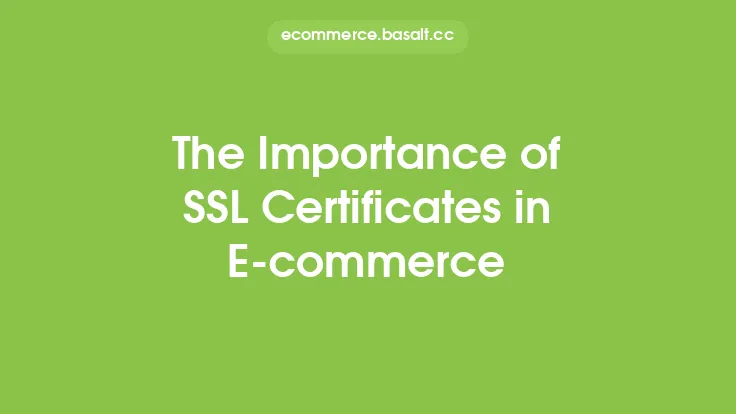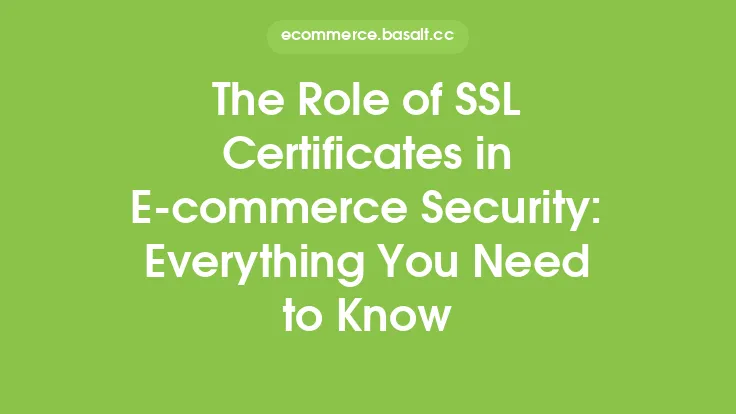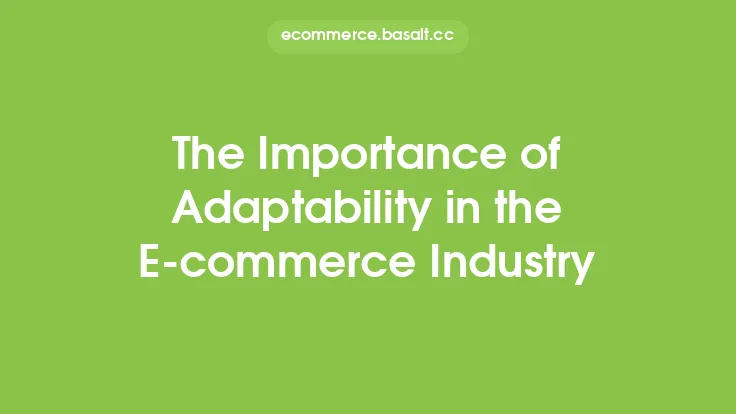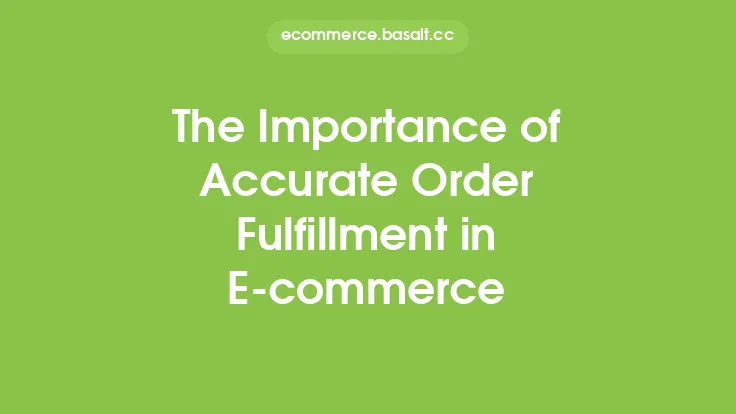In today's digital age, online shopping has become an integral part of our lives. With the rise of e-commerce, it's essential for online businesses to ensure a secure and trustworthy environment for their customers. One crucial aspect of e-commerce security is the use of SSL certificates. SSL (Secure Sockets Layer) certificates are a type of digital certificate that encrypts data transmitted between a website and its users, providing a secure connection and protecting sensitive information from interception and eavesdropping.
What is an SSL Certificate?
An SSL certificate is a digital certificate issued by a trusted certificate authority (CA) that verifies the identity of a website and its owner. It contains the website's public key and information about the website, such as its domain name, organization name, and location. When a user visits a website with an SSL certificate, their browser checks the certificate to ensure it's valid and trusted. If the certificate is valid, the browser will display a padlock icon in the address bar, indicating a secure connection.
How SSL Certificates Work
When a user visits a website with an SSL certificate, the following process occurs:
- The user's browser requests a secure connection to the website.
- The website's server responds with its SSL certificate, which includes its public key.
- The user's browser checks the certificate to ensure it's valid and trusted.
- If the certificate is valid, the browser uses the public key to encrypt the data transmitted between the user's browser and the website's server.
- The encrypted data is then transmitted over the internet, where it can only be decrypted by the website's server using its private key.
Benefits of SSL Certificates in E-commerce
SSL certificates provide numerous benefits for e-commerce websites, including:
- Encryption of sensitive data: SSL certificates encrypt sensitive information, such as credit card numbers, passwords, and personal data, protecting it from interception and eavesdropping.
- Trust and credibility: A valid SSL certificate indicates to users that a website is trustworthy and secure, increasing the likelihood of conversions and sales.
- Google search engine ranking: Google favors websites with SSL certificates in its search engine rankings, as they provide a secure environment for users.
- Compliance with regulations: SSL certificates are required for compliance with regulations, such as the Payment Card Industry Data Security Standard (PCI DSS) and the General Data Protection Regulation (GDPR).
Types of SSL Certificates
There are several types of SSL certificates available, including:
- Domain Validation (DV) certificates: These certificates verify the domain name of a website and are usually issued quickly and at a low cost.
- Organization Validation (OV) certificates: These certificates verify the organization name and location of a website, providing a higher level of trust and credibility.
- Extended Validation (EV) certificates: These certificates provide the highest level of trust and credibility, as they require a thorough verification process and display a green address bar in the browser.
- Wildcard certificates: These certificates secure multiple subdomains of a website, such as blog.example.com and shop.example.com.
- Multi-domain certificates: These certificates secure multiple domains of a website, such as example.com and example.net.
Installing an SSL Certificate
Installing an SSL certificate on an e-commerce website is a relatively straightforward process. The steps involved include:
- Generating a certificate signing request (CSR): The website's server generates a CSR, which includes the website's public key and information about the website.
- Submitting the CSR to a CA: The CSR is submitted to a trusted CA, which verifies the website's identity and issues an SSL certificate.
- Installing the SSL certificate: The SSL certificate is installed on the website's server, and the website is configured to use the certificate.
- Testing the SSL certificate: The SSL certificate is tested to ensure it's working correctly and providing a secure connection.
Conclusion
In conclusion, SSL certificates play a vital role in e-commerce security, providing a secure and trustworthy environment for online businesses and their customers. By understanding what SSL certificates are, how they work, and the benefits they provide, e-commerce website owners can ensure a secure and successful online presence. With the various types of SSL certificates available, website owners can choose the one that best suits their needs and provides the highest level of trust and credibility. By installing an SSL certificate and ensuring a secure connection, e-commerce website owners can protect sensitive information, increase conversions and sales, and maintain a competitive edge in the online market.





